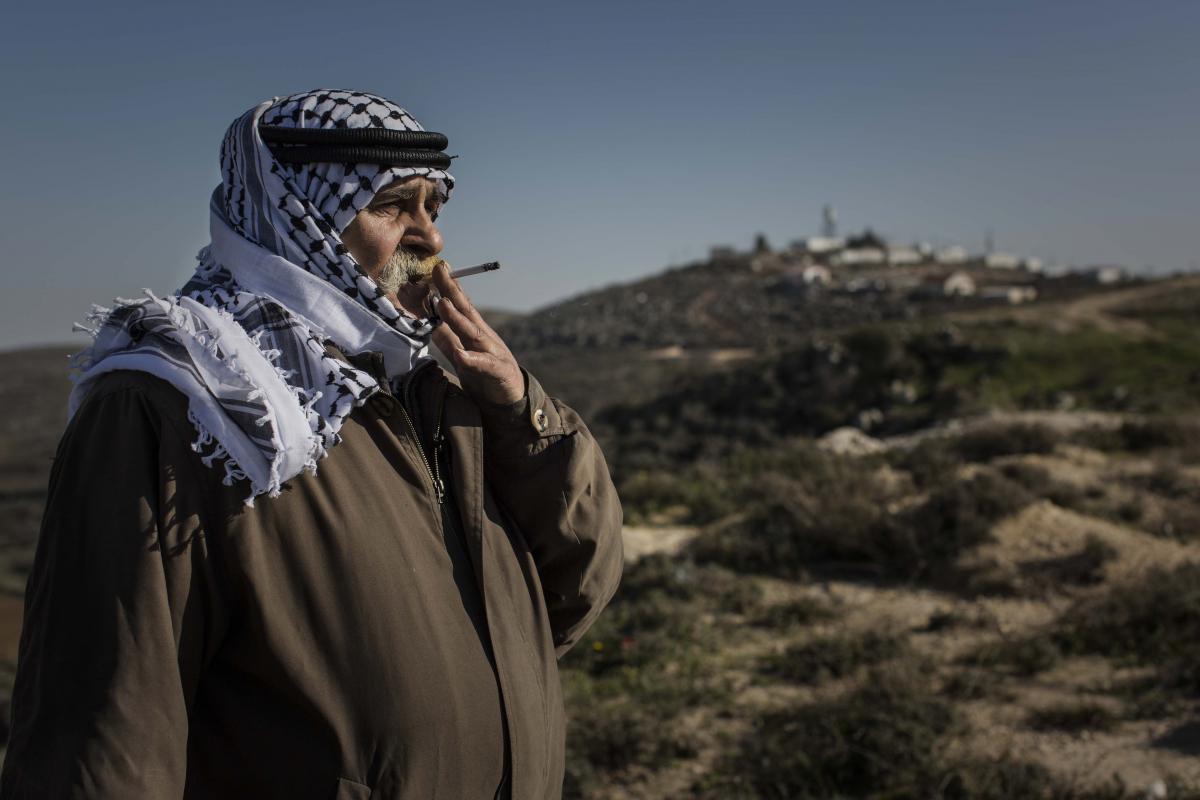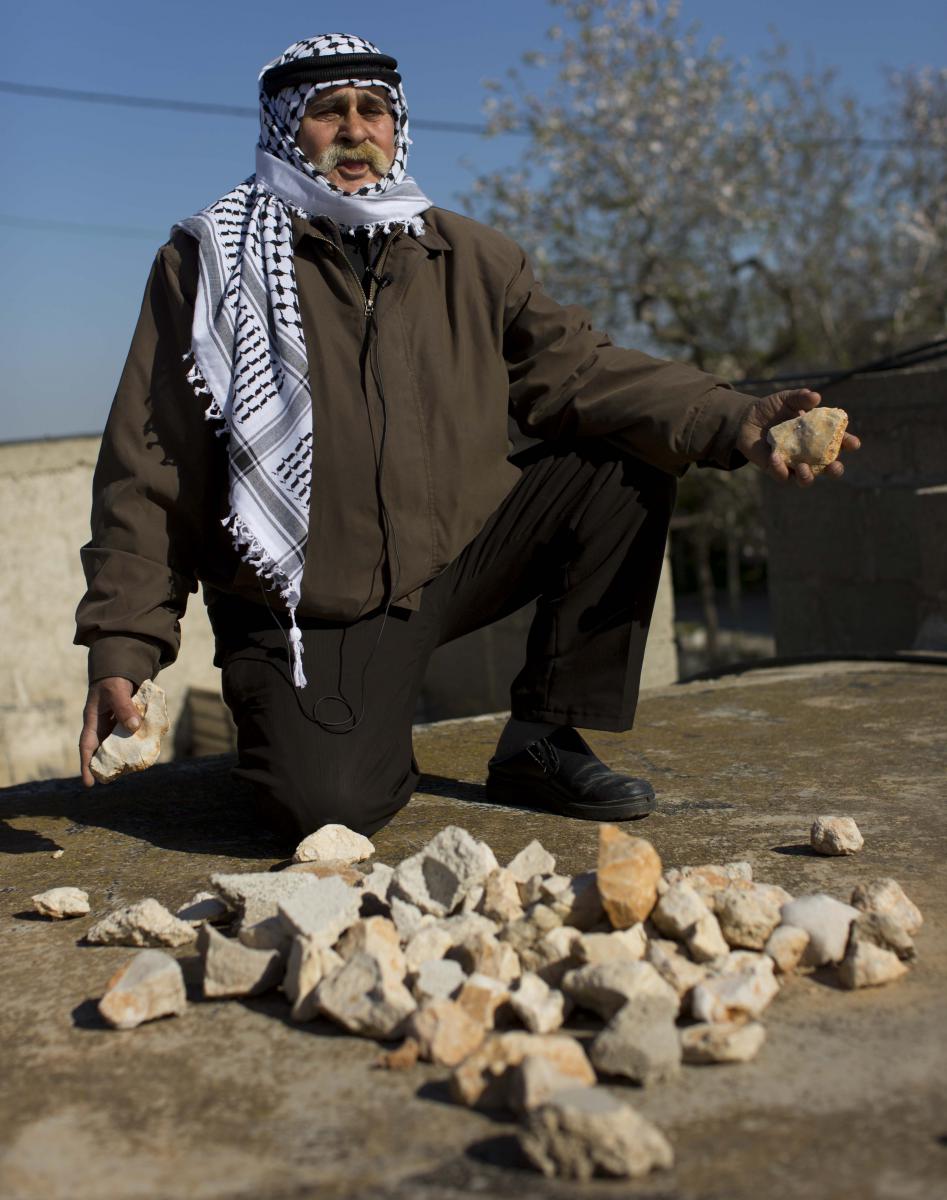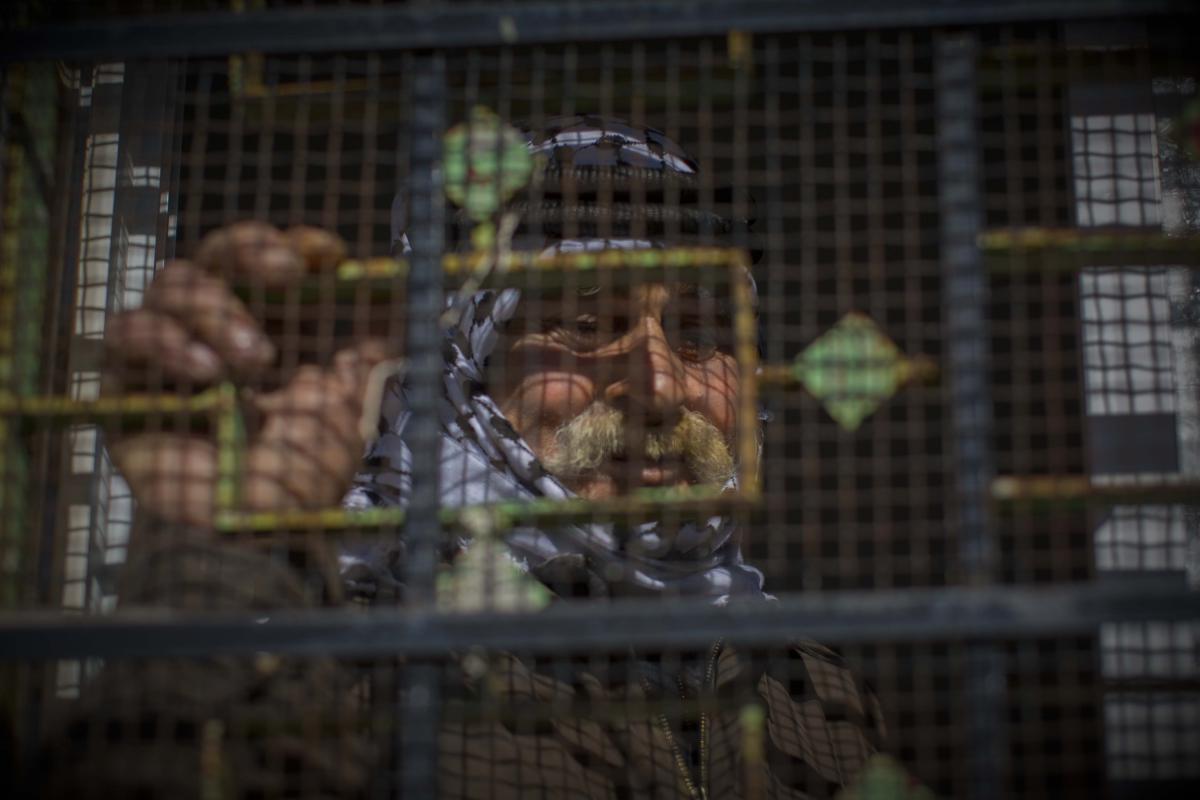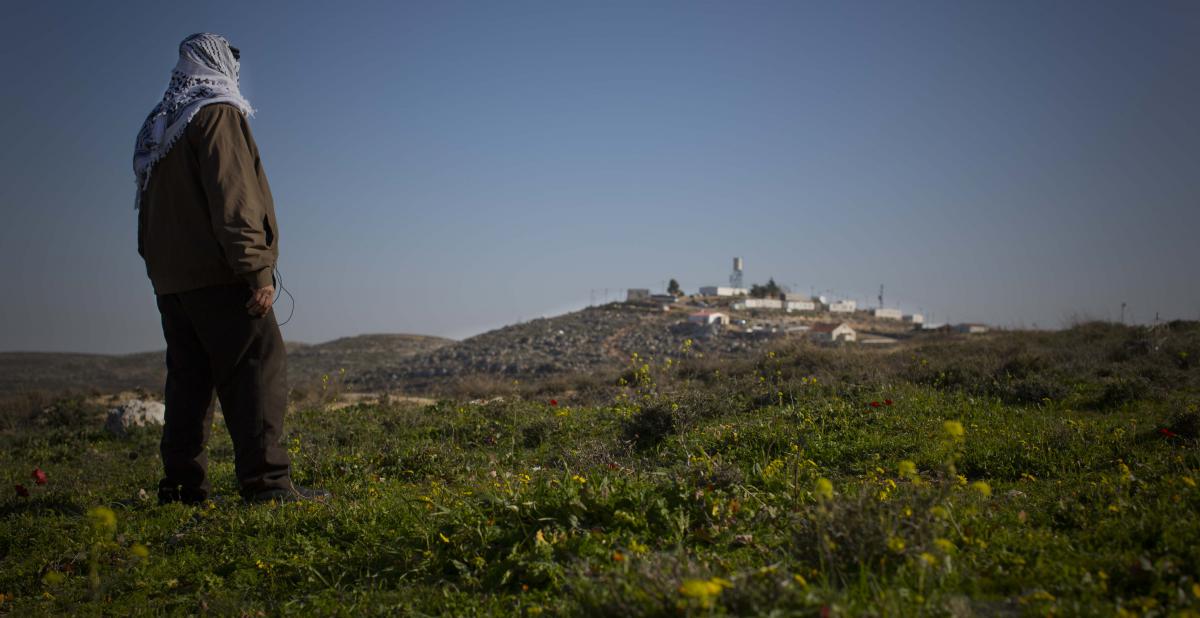Kamal Farah Abed keeps stones on his roof to protect his family from Israeli settlers. All his windows have grids on. "We teach our children that fear is not allowed here. I’m not going anywhere. They will have to kill us all, but we’re not leaving”.

Kamal in front of the settlement. Earlier he used to have his house there.
The life in the little village
Daily life in Jalud, a village south of Nablus, in the West Bank, is not easy. The village dates back to at least 1596, according to Ottoman tax registers, and in 2007 it’s population was 464 according to the Palestinian Central Bureau of Statistics (PCBS). In the past ten years, however, four illegal israeli settlements and outposts were built right next to it – Esh Kodesh, Adi Ad, Ahiya and Shvut Rachel. Since then, harassments and attacks became part of their routine.
Many Palestinians have left the village
Kamal has seen many of his neighbours leave the village as access to their own groves was severely restricted by the army and the settlers – not to mention when they set them on fire. Those who remain are afraid of simply going to work – also afraid of what they might find when they come back. Since Jalud is located in ‘Area C’, as defined by the Oslo Agreements between Israel and the Palestinian Authority, the only legal system here is israeli’s military law. This means that, if Jalud’s inhabitants feel threatened by the settlers, their only option would be to call the Israeli army – which is not allowed or willing to arrest israeli citizens. Frequently, the soldiers end up arresting the palestinians themselves when settlers attack the villagers. That is what happened last time that his son complained about the settlers to the police – he was then taken to the interrogation center in Jerusalem. There is no civil law they can resort to.
“Still, they called it a democratic state. What democracy are they really talking about?”.

He keeps stones on his roofs
In situations like these, Jalud residents can only try to defend themselves, without expecting any help from any institution. The multiple stones on the roofs are a rudimentary way of disencouraging the settlers to came too close to his house.
“They usually come when we are sleeping. So there is always someone here in the roof, awake, to warn the people in case something happens”.
Last time the settlers came and faced resistance, they called the army – who attacked Jalud’s people instead, with teargas bombs and pepper spray. Sixteen of them went to the hospital. No settler was arrested.
“They [settlers and soldiers] collaborate with each other”.

Kamal keeps stones on his roof, to be able to defend themselves.
The children have been hit by stones
Kamal`s children have been hit by stones thrown by settlers more than once. A 4 year old boy from the village was hit in the head and was recovered in hospital for many days. Most of the settlers carry personal guns, and they also throw molotov cocktails at the houses in Jalud, notwithstanding that there are children living inside.
“This is not something you would expect from human beings”.
Lately, he has decided to put grids on every window since a stone broke the glass and hit the ground right next to a 6-month-old baby’s head.

They need to have grids on every window on the house.
“I feel like I live in a prison inside my own house. If you want to live here, you must to forget about fear. That’s what we are teaching our children: fear is not allowed here".
I’m not going anywhere
Despite that fact all their struggles, Kamal Farah Abed is not willing to leave his land.
“I will never leave the village. I’m not going anywhere. They will have to kill us all – we’re not leaving. We were born here, we live here, and we will die here – they must understand this”.

Kamal can watch it, but he is not allowed to walk over to his own land.
Use some minutes, and watch his story:


